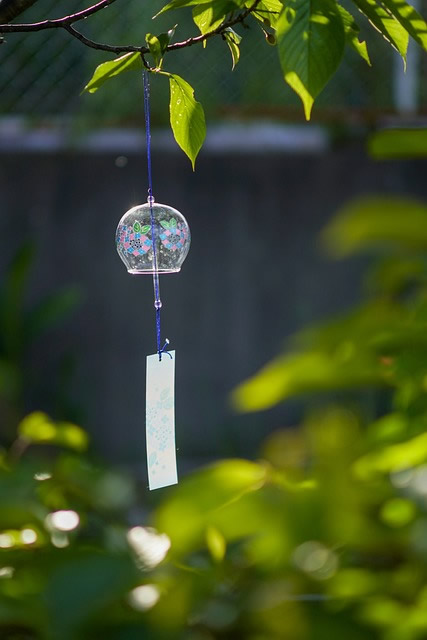昨日から「Want to cope with heatwaves? Look to Japan’s creative cooling solutions -「熱波への対処、日本の独創的な涼み方」を読んでいます。

・「熱波への対処、日本の独創的な涼み方」(1)
Zen spaces, Zen mindset
禅の空間、禅の心構えYou could see it in every tourist’s eyes as they fanned their sweaty faces: I want out of the sun, now.
汗ばんだ顔をあおぐ観光客の目を見ればわかる、日差しを避けたい。
In times like this, a Japanese concept is a useful balm.
このような時には、日本的な発想が役に立つ。
Mono no aware can perhaps best be summed up in the phrase “this too shall pass”,
「もののあはれ」は、おそらく「これもまた過ぎ去る」というフレーズに最もよく集約されており
the notion that all things are beautiful, fleeting and temporary – even sweltering heat.
全てのものは美しく、はかなく、一時的なものであるという考え方で、汗ばむ暑さもまた然り。
In an interview with the South China Morning Post, Tokyo-based journalist Richard Lloyd Parry, who wrote a book about the 2011 Japanese tsunami, theorised that exposure to extreme weather has moulded Japan’s national character.
2011年の日本の津波に関する本を書いた東京在住のジャーナリスト、リチャード・ロイド・パリーは、サウスチャイナ・モーニング・ポストのインタビューの中で、異常気象にさらされることが日本の国民性を形成してきたと説いた。
Earthquakes, punishing seasons, typhoons – “all this has bred a deep strain of fatalism or acceptance [in the Japanese psyche]“.
地震、厳しい季節、台風・・・「これら全てが(日本人の精神に)宿命論や受容の深いひずみを育んできた」と。
strain「緊張、力み、骨折り、歪み、(ぴんと)張る、引っぱる、ふりしぼる、(無理をして)痛める・健康を損なう」。
自然災害の多さとその経験値は、日本人にはかなり蓄積されているかもしれませんね。
ヨーロッパにももちろん厳しい環境はあるとは思いますが、過酷な環境が精神面に深く影響している・・・それはきっとあるのでしょうね。
理由は単純明快!「少ないコストでしっかり楽しく学べるから」。
私自身の経験(高機能でビックリ)をびっしり書いていますので、良かったら読んでみてください。
下のバナーからどうぞ!






